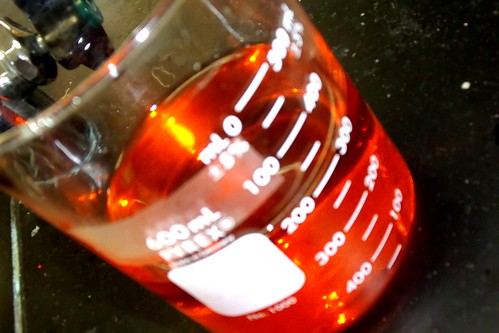There are billions of bacteria living in your home and on your body. Billions! Every square inch contains hundreds of tiny little germs. Is your skin starting to crawl yet? It’s no wonder that the anti-bacterial craze gained so much momentum, and it’s still going strong. You probably wouldn’t purchase a hand soap or cleaning product that didn’t have “anti-bacterial” on the label. With so many germs all around us, we’re fighting an uphill battle to ward them off, and we need all the help we can get! Or do we?

A Contaminated World
We’ve become a nation of “germaphobes” and hypochondriacs. Outbreaks in the not-so-distant past of things like Mad Cow Disease and Swine Flu didn’t help matters. We’re hyper-aware of all the bacteria we’re exposed to, and we don’t want to let ourselves fall victim to a tainted piece of meat or toilet seat. There are dangers everywhere, so we load up on chemicals to protect ourselves, from toxic cleaning products to harsh soaps and even to preventative medicines. Compared to our ancestors, we think we’re really prepared to stop contamination and the spread of germs. But is it all really necessary?
A Little Dirt Won’t Hurt
Bacteria are so misunderstood, and they have more than just a bad reputation – they’re feared and hated alike. But the truth is, not all bacteria are bad. Some bacteria are actually very good, and good bacteria even help to protect us against the bad. When we use harsh chemicals and anti-bacterials, we’re killing all the germs, not just the bad ones. Our ancestors didn’t, and they survived, didn’t they? They might have even been healthier than we are today.
Bacterial Street Smarts
You simply do not need chemicals to stop contamination for everyday purposes. In your home, you can prevent the spread of bacteria in other more practical, less toxic ways. When you’re in the kitchen, use separate cutting boards for meat and vegetables. Wash all your utensils and dishes in hot, soapy water, and use a mild cleaner for your countertops and sink. You don’t need an antibacterial cleaner; natural cleaning agents like baking soda and vinegar work just as well. The best way to prevent getting sick from bacteria is to simply wash your hands – wash them before you cook, after you cook, and after you use the bathroom. That’s it; and you don’t have to use anti-bacterial soap to do it.
Chemical Romance
Since we are a modern, technologically-advanced society, after all, chemicals against contamination won’t be going away anytime soon. In fact, they shouldn’t. While regular soaps and cleaning products are fine for your home, there are many instances when chemicals are welcome and needed to kill bacteria. For example, they’re great during surgery, for medical purposes, and in hospitals and other institutions. These are scenarios and places where you just don’t want to take any chances of introducing or spreading harmful bacteria; the benefits are greater than the risks. Since you probably aren’t at high risk for sepsis or widespread disease at home, you can confidently reduce the chemicals you use – if you dare!
Allen Ricks is a chemical expert and freelance writer who often writes about anything from basic poison control tips to the benefits of safety data sheets.
Photo Credit: ur_future_shiska

